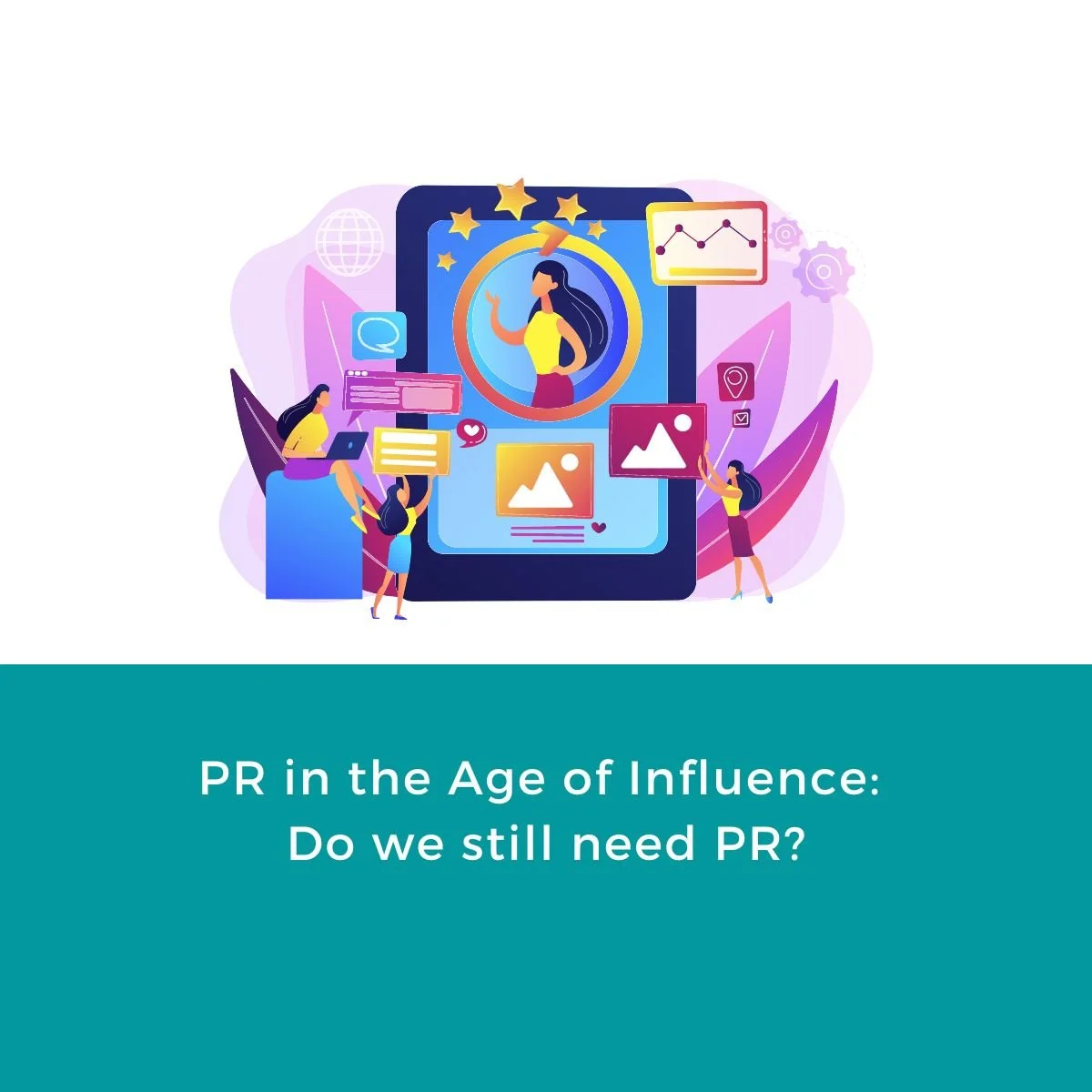PR in the Age of Influence: Do We Still Need Public Relations?
In today's digital landscape, where social media dominates our daily lives and influencers hold immense sway over consumer opinions, one may question the relevance and necessity of traditional Public Relations (PR) practices. The rise of social media platforms and the increasing power of influencers have undoubtedly disrupted the communication landscape. However, despite these changes, PR remains a vital tool in shaping public perception, managing crises, and building long-term relationships. In this article, I explore the evolving role of PR in the age of influence and argue that it remains an indispensable component of any successful communication strategy.
The Power of Influence:
Social media has revolutionised how information is shared and consumed, and influencers have emerged as key opinion leaders in various industries. With large and engaged followings, influencers possess the ability to shape trends, promote products, and influence purchasing decisions. Many brands have turned to influencers as a primary marketing channel, leveraging their authenticity and relatability to connect with target audiences. While influencer marketing is undeniably effective in reaching specific demographics, it should not be viewed as a substitute for PR.
The Importance of Authenticity:
One of the fundamental aspects of PR is building trust and credibility, and this is where PR professionals excel. Influencers may have a loyal fan base, but their primary objective is often monetisation through brand partnerships. In contrast, PR professionals focus on establishing and maintaining genuine relationships with stakeholders, including the media, industry experts, investors, and the public at large. These relationships are based on trust, transparency, and a commitment to ethical communication. PR is not just about promoting a brand but also managing its reputation and ensuring its actions align with the values and expectations of its stakeholders.
Navigating Crises and Building Trust:
In today's fast-paced digital landscape, the risk of reputational damage is ever-present. Missteps can quickly go viral, leading to severe consequences for a brand's image and bottom line. PR professionals are well-versed in crisis communication and reputation management. They possess the expertise to swiftly respond to crises, provide accurate information, and shape the narrative to mitigate damage. While influencers can contribute to the dissemination of information, PR professionals understand the nuances of effective crisis management, including stakeholder analysis, message development, and media relations, which are crucial in preserving a brand's reputation during challenging times.
Beyond Short-term Gains:
Influencer marketing often focuses on short-term gains, such as immediate sales or campaign awareness. However, PR takes a broader and more strategic approach, aiming for sustained brand reputation and long-term relationships. PR professionals work diligently to build a brand's image, cultivate positive public perception, and establish thought leadership within the industry. Through thoughtfully crafted PR campaigns, organisations can position themselves as industry leaders, gain media coverage, and enhance their credibility. These long-term benefits are difficult to achieve through influencer marketing alone.
While the age of influence has reshaped the communication landscape, Public Relations remains a crucial component of any comprehensive communication strategy. Influencers play a valuable role in reaching specific demographics and driving short-term results. However, PR professionals bring a wealth of expertise in reputation management, crisis communication, and long-term relationship building that cannot be replaced by influencer marketing alone. By combining the power of influencers with strategic PR initiatives, organizations can effectively navigate the modern media landscape, build trust, and establish themselves as credible and reputable brands.

